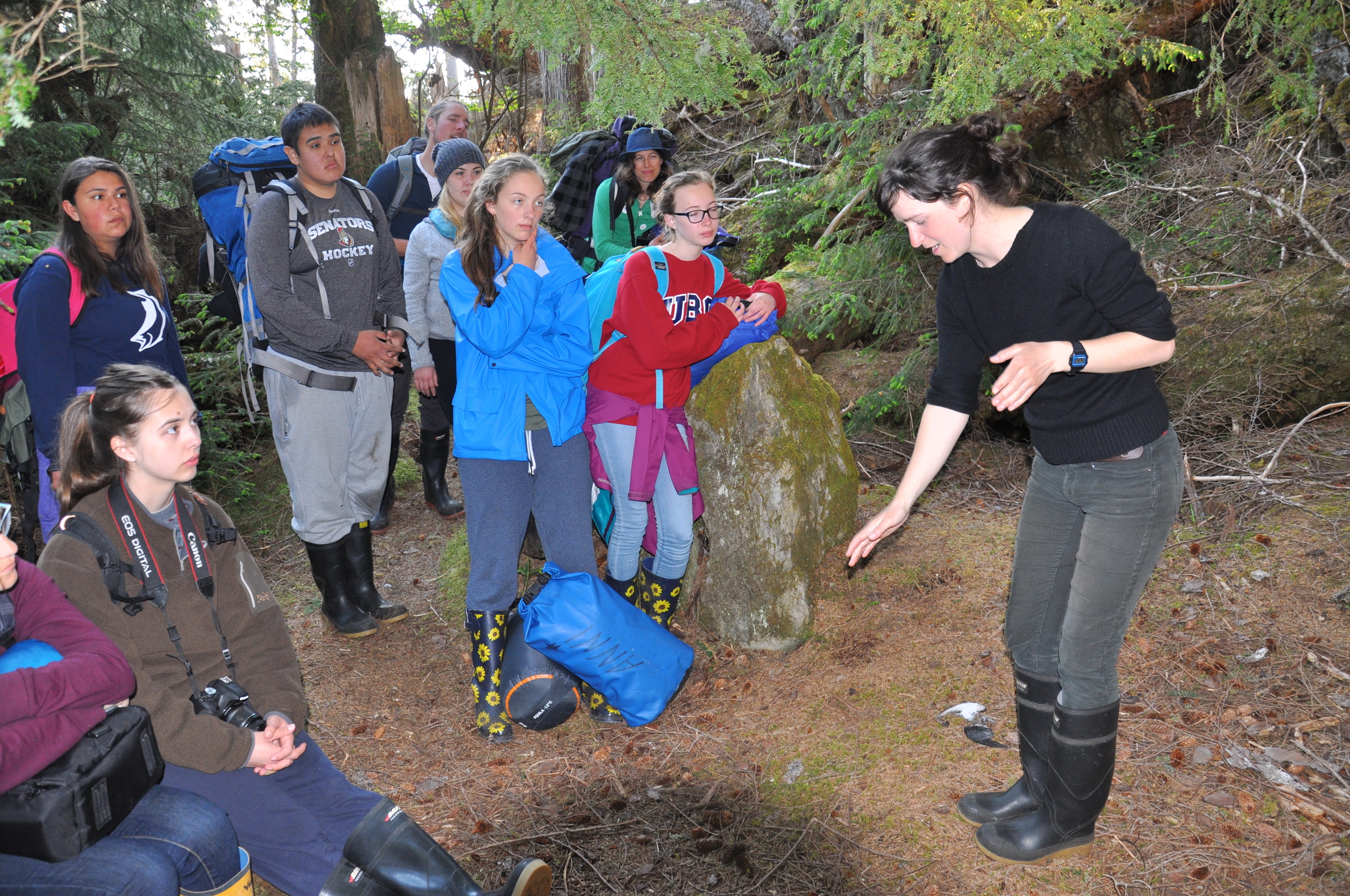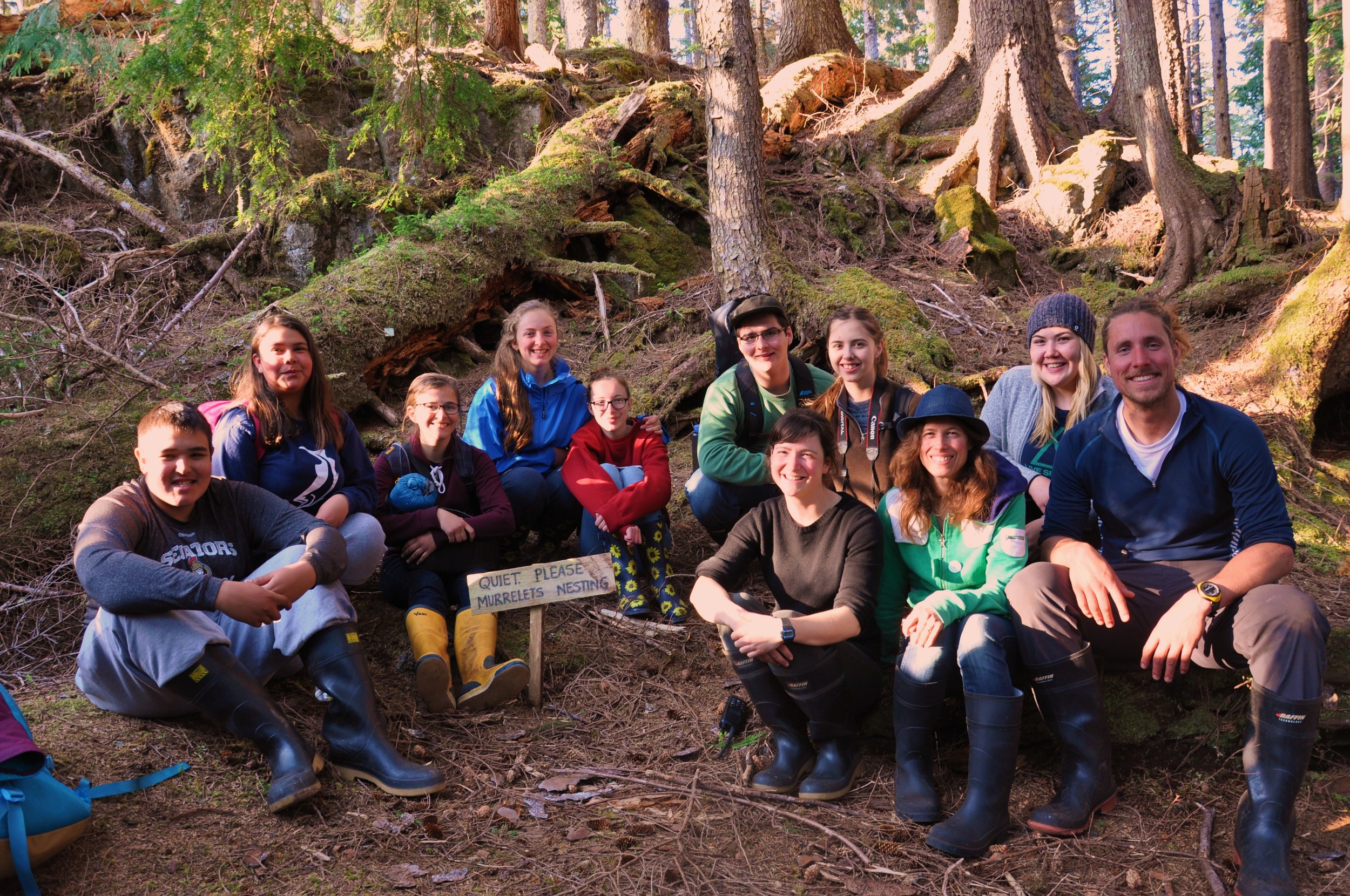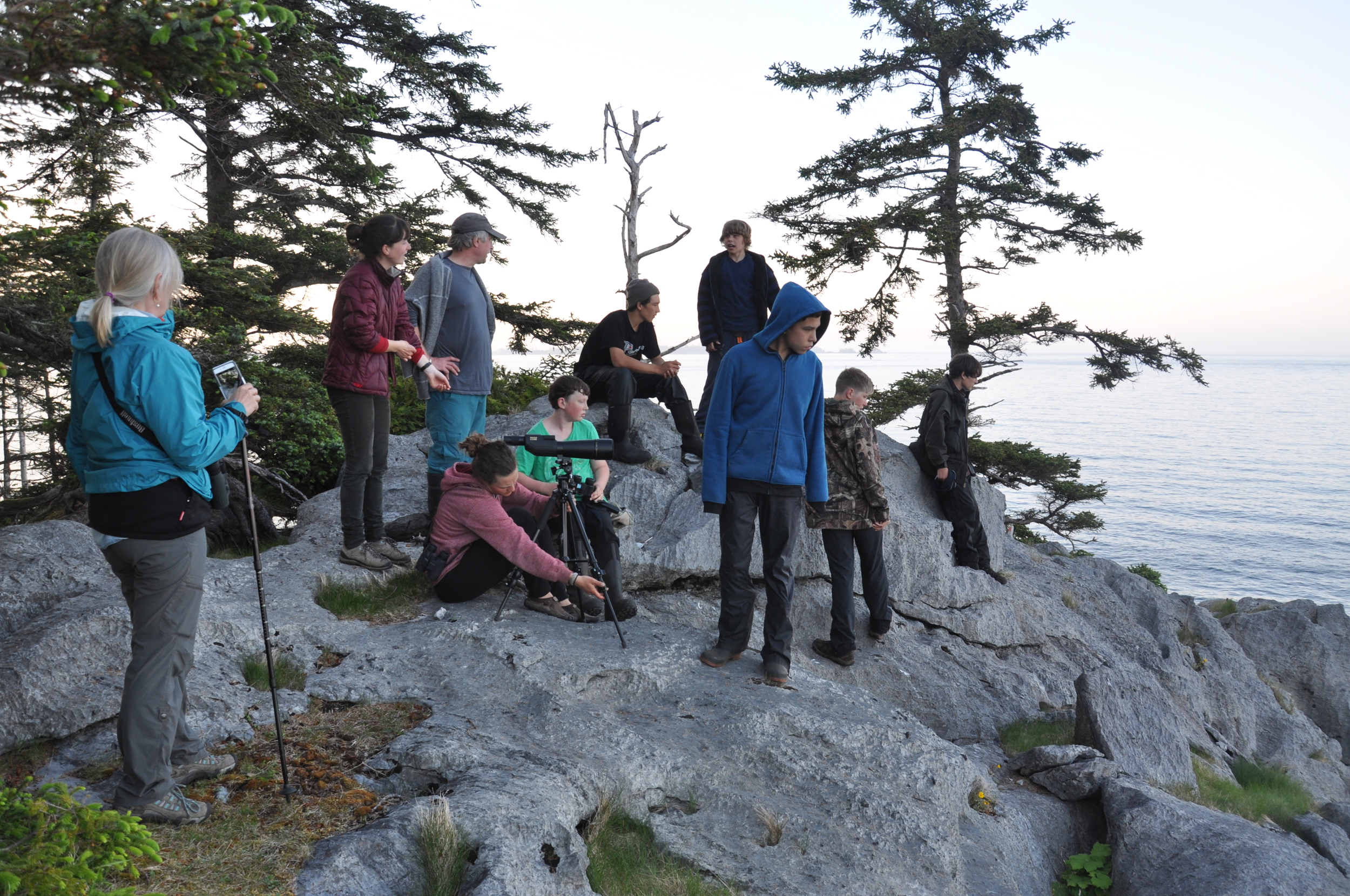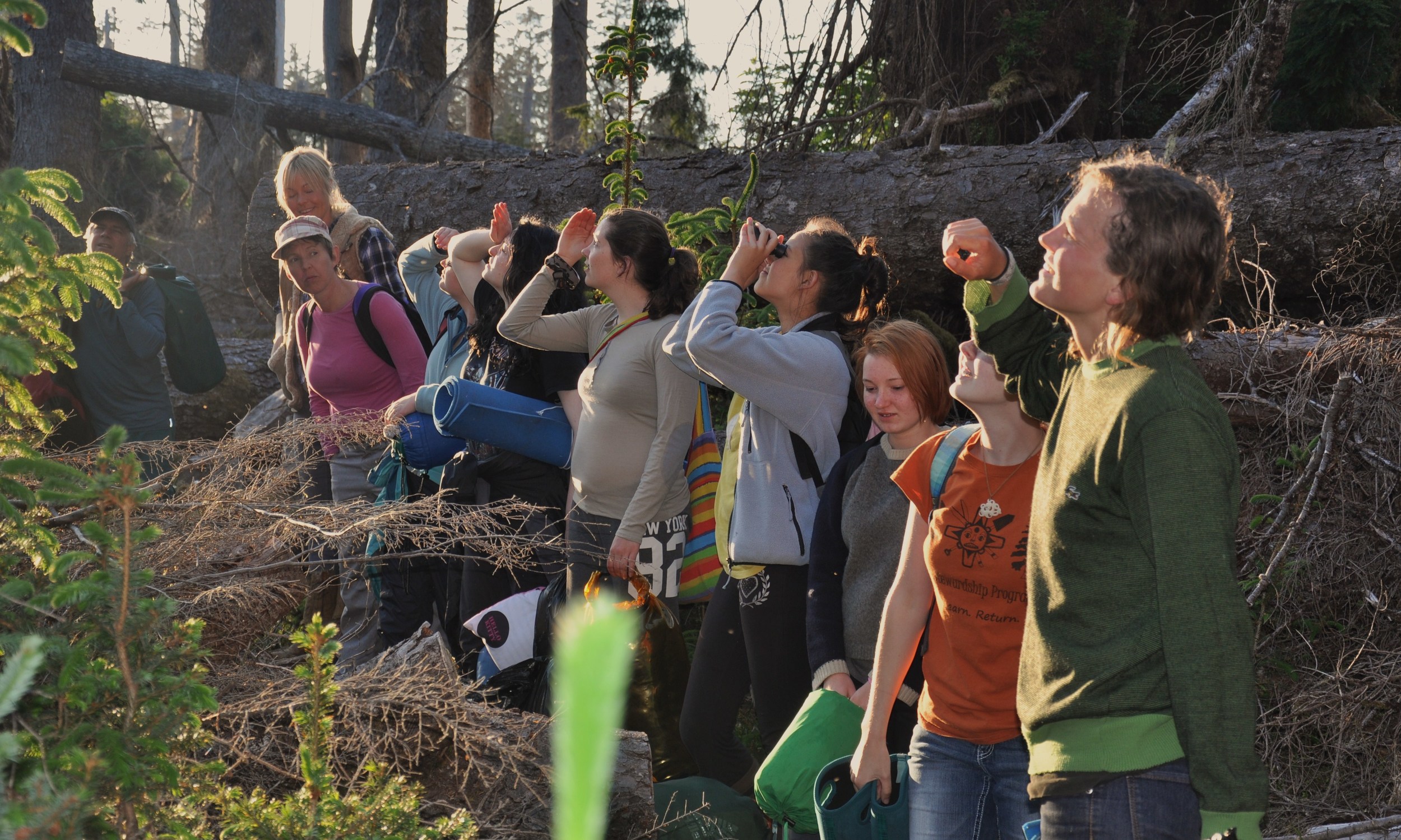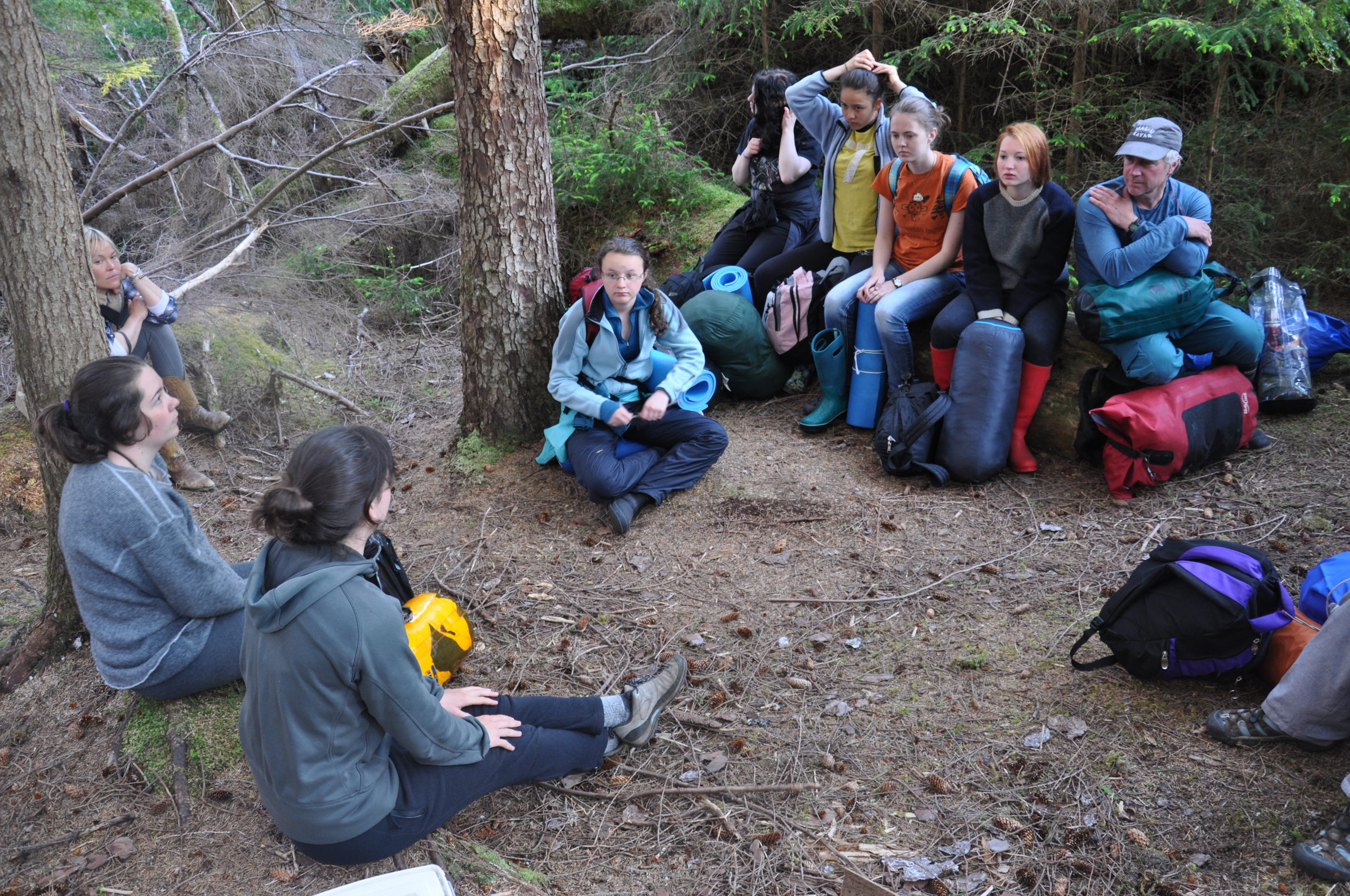School Groups
Students from local schools have been visiting East Limestone Island annually since 1991. In small groups, they spend part of a day at our field camp, participating in hands-on science activities.
School groups need to arrange their own transportation to and from East Limestone Island, and there is no overnight accommodation on East Limestone Island. Rustic but recently upgraded camping facilities and tent sites exist on near by Louise Island.
Since 1990, we have hosted over 90 school trips from 5 local schools – totaling over 800 students, teachers and chaperones. Over the years, we have touched most of the families on Haida Gwaii. Our program is regularly mentioned at high school graduations and in yearbooks as a highlight of the student experience. A number of our students have gone on to study biology, resource management, and/or marine conservation, and some have returned to volunteer and work for us a graduate students.
Project Limestone
Education is another large part of LBCS programs both at the Limestone Field Camp and in town. The most exciting educational opportunities are the hands-on field research available on Limestone Island. Commercial tour boats and other interested boaters stop by for guided day time interpretative tours (with prior notice).
Away from the field camp LBCS's educational and outreach program publishes scientific results, makes presentations in local schools, runs a speakers series on many natural history topics, has displays in the Haida Gwaii Museum, hosts educational booths at community events, shares information with other study groups, and generally passes the word about the steadily developing body of knowledge and long-term research results coming out of Laskeek Bay.
“Spending time at Limestone Island to monitor Ancient Murrelets chicks was invaluable because it showed me a definite career possibility. I had so much fun learning about the Murrelets and their habitat. Participating in this activity really steered me in the direction of going into a biology related career field. As a youth this trip helped me very much in building a foundation to find out what I want to do and be in life.”
“If we are to educate our young, are these not the types of experiences from which we want them to learn?”
“It is a privilege to have the opportunity to be involved with the research and sustainability of such a diverse species (Ancient Murrelet), and it teaches everyone involved with the program the obligations of us as human beings to protect our natural environment.”
